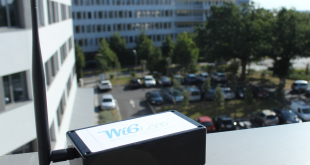I’MTech is dedicating a series of articles to success stories from research partnerships supported by the Télécom & Société Numérique Carnot Institute (TSN), to which IMT Atlantique belongs. How can military vehicles be made more discreet on the ground? This is the question addressed by the Caméléon project of the Directorate General of Armaments (DGA), involving Nexter group and IMT Atlantique …
Read More »Search Results for: digital uses
The unintelligence of artificial intelligence
Despite the significant advances made by artificial intelligence, it still struggles to copy human intelligence. Artificial intelligence remains focused on performing tasks, without understanding the meaning of its actions, and its limitations are therefore evident in the event of a change of context or when the time comes to scale up. Jean-Louis Dessalles outlines these problems in his latest book …
Read More »Chronic disease: what does the Internet really change in patients’ lives?
For the first time, a study has assessed the impact of digital technology on the lives of patients with chronic diseases. It was conducted by the ICA patient association collective, in partnership with researchers from the Smart Objects and Social Networks chair at Institut Mines-Télécom Business School. The study provides a portrait of the benefits and limitations perceived by chronically ill …
Read More »Coopetition between individuals, little-understood interactions
Mehdi Elmoukhliss, Institut Mines-Télécom Business School and Christine Balagué, Institut Mines-Télécom Business School Coopetition is a concept used in the field of management science (especially in strategy), originally used to describe situations in which organizations (companies, clubs etc.) simultaneously cooperate and compete with one another, as paradoxical as that may seem. A recent article in The Conversation pointed to the …
Read More »Imagination: an architect and driving force of transitions
All technology starts with a vision, a tool created to meet one of society’s objectives. Its development path is formed by both human projections and the dynamics of the transformations it generates. It is therefore important to take the time to ask ourselves what we intended to do with digital technology and what we will do with it. We must …
Read More »When organizations respond to cyberattacks
Cyberattacks are a growing reality that organizations have to face up to. In the framework of the German-French Academy for the Industry of the Future, researchers at IMT and Technische Universität München (TUM) show that there are solutions to this virtual threat. In particular, the ASSET project is studying responses to attacks that target communication between smart objects and affect …
Read More »Using personalised services without privacy loss: what solutions does technology have to offer?
Online services are becoming more and more personalised. This transformation designed to satisfy the end-user might be seen as an economic opportunity, but also as a risk, since personalised services usually require personal data to be efficient. Two perceptions that do not seem compatible. Maryline Laurent and Nesrine Kaâniche, researchers at Telecom SudParis and members of the Chair Values and …
Read More »From personal data to artificial intelligence: who benefits from our clicking?
Clicking, liking, sharing: all of our digital activities produce data. This information, which is collected and monetized by big digital information platforms, is on its way to becoming the virtual black gold of the 21st century. Have we all become digital workers? Digital labor specialist and Télécom ParisTech researcher Antonio Casilli has recently published a work entitled En attendant les …
Read More »Industry of the future: The German-French Academy launches seven new projects
Following a call for proposals launched by the German-French Academy for researchers at IMT and TUM (Technische Universität Munchen), seven projects were selected in October 2018. The projects focus on key topics for the German-French Academy for the Industry of the Future. A French-German platform for AI will soon be launched. The selected projects focus on six topics: AI …
Read More »Wi6labs: customized sensor networks
Wi6labs, a start-up incubated at IMT Atlantique, installs connected sensor networks for municipalities and industries. What makes this startup so unique? It offers custom-developed private networks that are easy to install. When it comes to controlling energy networks, water supply and monitoring air quality, the solution proposed by Wi6labs is attractive due to its simplicity and the savings it offers. …
Read More » I'MTech L'actualité scientifique et technologique de l'IMT
I'MTech L'actualité scientifique et technologique de l'IMT









